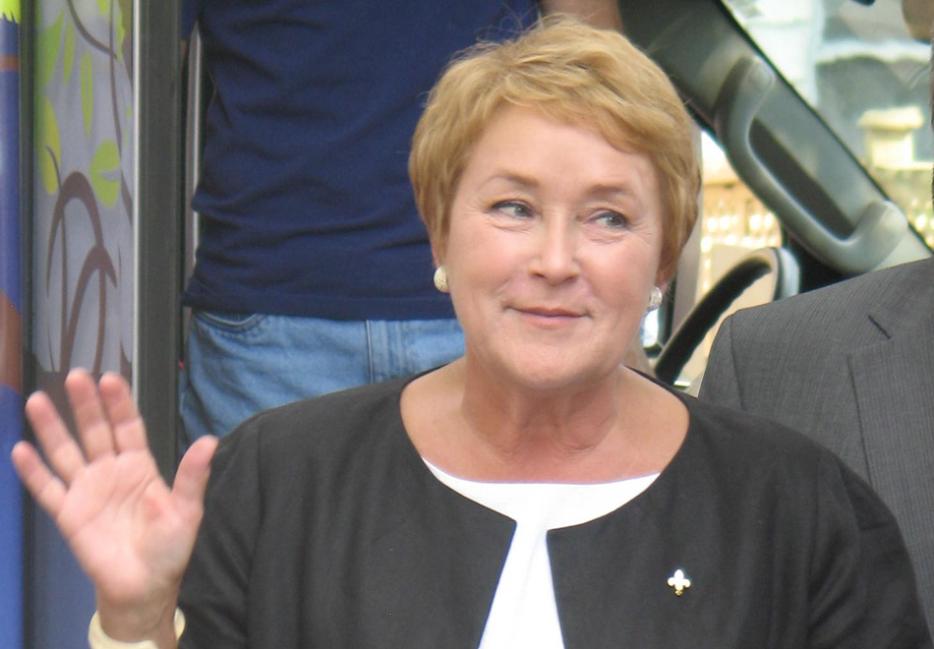Having finally, belatedly picked up Paul Wells’ The Longer I’m Prime Minister, the Maclean’s columnist’s book about Prime Minister Stephen Harper in power, I was reminded in the early chapters about just how weird 2006 was, as years in Canadian politics go. The whimpering end of Paul Martin’s political career, the early months of Stephen Harper not being nearly as world-endingly terrible as the Liberals tried to convince us he’d be, and Stéphane Dion’s unlikely Liberal leadership win in Montreal that December. Then, in the middle of all that, was the Quebec as a Nation motion.
For those who don’t recall, during the Liberal leadership race Michael Ignatieff had mused (Ignatieff rarely went so far as to actually propose anything) about amending the constitution to recognize Quebec as a “nation within Canada.” Only a few years later Ignatieff would run away from that idea, but whatever. The objective was to try to get Quebec’s signature to the constitution, something we’ll get back to.
Ignatieff’s unhelpful musings prompted the Bloc Quebecois (remember them?) to present a motion calling for the House of Commons to do what Ignatieff had called for, prompting a then-still-new Prime Minister Harper to present a motion that recognized “the Québécois form a nation within a united Canada.”
If you don’t remember this event or had forgotten about it, that’s because in the end it led to neither deliverance or catastrophe, despite more than a little emotional energy being expended. Full disclosure: to my memory, I got the issue ridiculously wrong at the time, saying the motion would be just the next in a series of demands by Quebec nationalists, who would use the concession to extract ever more from Ottawa. Instead, the BQ barely exists as a party in Parliament. Boy. Events. I don’t know.
A little chastened, I won’t make a prediction about today’s provincial election in Quebec, except to note that if the polls are right—and lately, that’s been a big if—a PQ majority government seems to be out of the cards entirely, and a Liberal majority seems to be a possibility. If the very last polls are correct and God loves us very much, the PQ could come in as low as third.
The why, naturally, is the most interesting part: even Pauline Marois now acknowledges that her big mistake was to talk about sovereignty in a post-election Quebec. And smarter reporters than I are declaring separatism dead, at least for the foreseeable future, for the very basic but also incredibly important reason that voters aren’t having it anymore. The PQ can only win an election if they don’t breathe a word about separatism, which is kind of an amusing state for an explicitly separatist party to be in. Amusing for those of us on the outside, anyway.
The bad news is that the election, alas, will not be a repudiation of the Charter of Values. It would make me personally very happy to have my own political beliefs reflected in Quebec’s election results, but that now seems unlikely, because the election ended up being about something else.
The wonderful news is it’s possible—just barely—for us to imagine national politics without at least the background noise of a threat by Quebec to bolt for the door. That hasn’t been true for any part of my adult life, nor for the two decades prior to that. Quebec Liberal leader Phillipe Couillard says he’d like to talk about reopening the Constitution to get Quebec’s signature, which he probably won’t get a lot of takers on for the same reason Ignatieff didn’t. But with the threat of separatist blackmail disappearing, it’s a conversation that’s possible to imagine having in a reasonable way—eventually.
While the substance may be waning, though, the forms of separatism will stick with us for a while yet. The PQ will continue to be a force in Quebec out of institutional inertia if nothing else, and they may yet win an election in the future on their sophisticated, nuanced platform of “even when it was the bears, I knew it was the immigrants.”
And, of course, separatism could wax anew. A prolonged recession as severe as that of the late 1980s and early 1990s could get everyone’s engines running again, even if treating a recession in Quebec with separatism would be like treating a gunshot wound with another gunshot wound.
But for now, I choose to believe that the country that somehow has kept muddling through its multinational history, through World Wars and the fall of empires, through rebellions and depressions, will keep muddling on for a lot longer. It’s not romantic, and it will never satisfy the people who think we need to be America North, but it’s home.





